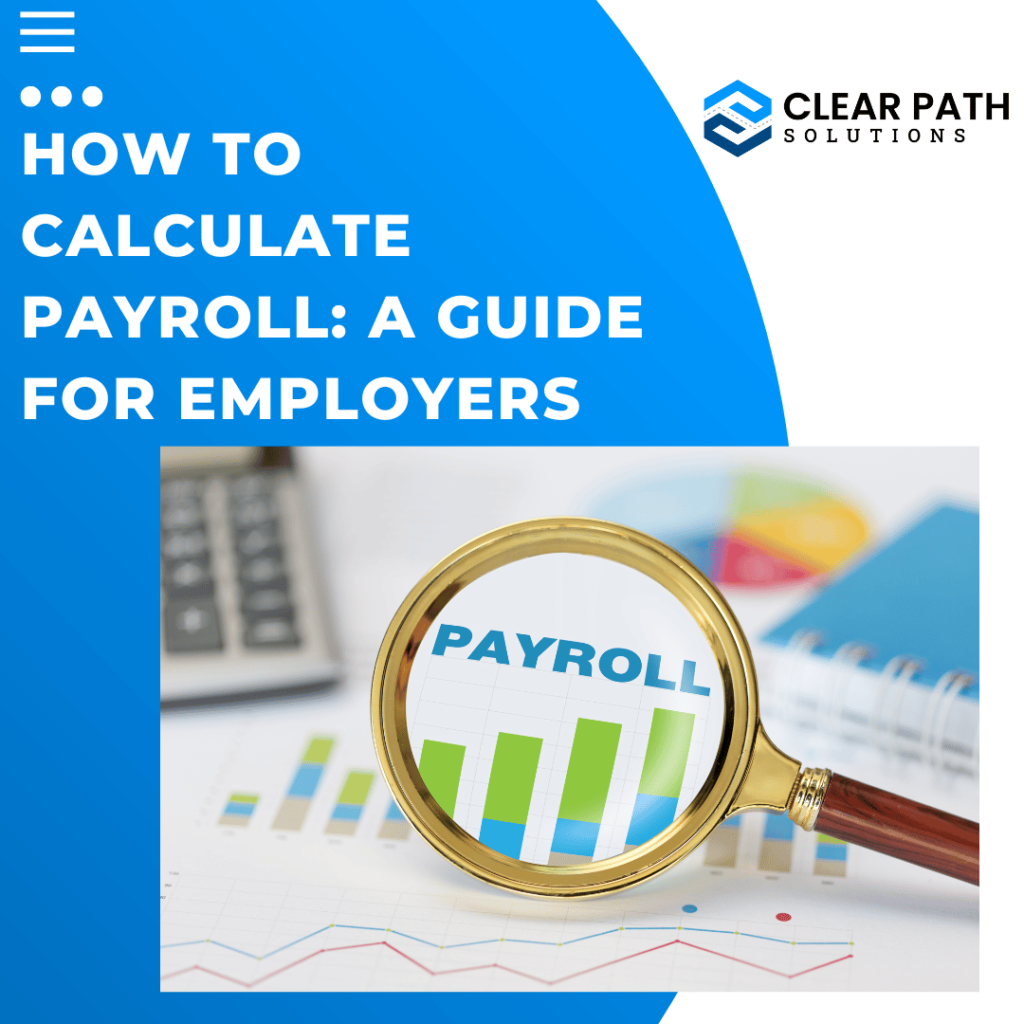Payroll calculation is one of the most basic yet critical functions of HR. Accurate payroll ensures employee satisfaction and smooth business functioning. Calculating payroll might sound like a simple numbers game at first glance—but any business owner or HR professional knows that it involves far more than just paying employees on time.
It’s a process that requires attention to detail, legal compliance, and careful financial planning. Whether you’re running a small start-up or managing a growing team, getting payroll right is essential not just for your employees’ satisfaction, but also to stay on the right side of UK tax and employment law.
👉 Need help managing payroll compliance in the UK? Contact Clear Path Solutions today for expert guidance.
What Is Payroll?
To cut short the long story, Payroll refers to the process of calculating and distributing employee wages, salaries, bonuses, and deductions. It includes tracking hours worked, applying tax codes, handling National Insurance contributions, and ensuring compliance with employment laws. Payroll also involves reporting to HMRC and maintaining accurate financial and employment records.
Start With the Basics: Gross Pay
The payroll process starts with one core figure: gross pay. This is the total amount an employee earns before any deductions. It includes basic salary or hourly wages, plus any additional earnings such as overtime, bonuses, commissions, or statutory pay like sick pay or maternity pay.
For salaried employees, gross pay is often fixed and easy to calculate—simply divide their annual salary by the number of pay periods (monthly or weekly). For hourly workers, multiply the number of hours worked by the agreed hourly rate. Don’t forget to include any extra hours or premiums for overtime.
📌 Clear Path Solutions can help you streamline gross pay calculations—reach out to our payroll experts today.
Apply Deductions: PAYE, National Insurance, and More
Once you’ve worked out gross pay, the next step is to deduct the necessary contributions. In the UK, the main payroll deductions are:
- PAYE (Pay As You Earn) – This is the system used by HMRC to collect Income Tax from employees. The amount deducted depends on the employee’s tax code, earnings, and personal allowance.
- National Insurance Contributions (NICs) – Both the employer and the employee contribute to NICs.
- Pension Contributions – Most employees are automatically enrolled in a workplace pension scheme, unless they opt out.
- Student Loan Repayments – Deductions are made if the employee earns above the repayment threshold.
- Other Deductions – Childcare vouchers, cycle-to-work schemes, court-ordered deductions, etc.
Payroll software typically calculates these deductions automatically based on HMRC rules.
💡 Stay compliant with UK payroll law—partner with Clear Path Solutions for professional payroll support.
Employer Costs: It’s Not Just About Employee Pay
While your employee sees only the take-home pay, as an employer, your total cost goes beyond what hits their bank account. On top of gross pay, you’re responsible for:
- Employer NICs
- Employer pension contributions
- Apprenticeship Levy
- Holiday pay, statutory sick pay, and parental leave pay
📊 Let Clear Path Solutions help you forecast and manage total payroll costs effectively.
Keep Records and Report to HMRC
UK employers must report payroll information to HMRC on or before each payday using Real Time Information (RTI) submissions. You must also provide employees with a payslip and retain payroll records for at least three years.
🧾 Avoid costly penalties—speak with Clear Path Solutions about accurate RTI submissions and recordkeeping.
Holiday Pay and Statutory Entitlements
Payroll also involves applying statutory entitlements, including:
- Holiday pay (5.6 weeks per year for full-time employees)
- Sick pay, maternity pay, and other family-related leave
These have specific rates and conditions set annually by the government.
🔍 Confused about entitlements? Clear Path Solutions can help ensure accurate calculations for every employee.
Final Pay: What Happens When an Employee Leaves?
When an employee leaves, payroll must include:
- Final salary
- Accrued holiday pay
- Bonuses owed or deductions
- A P45 form
- Redundancy payments if applicable
📥 Need help issuing final pay and P45s? Reach out to Clear Path Solutions for end-to-end payroll assistance.
Use Technology to Simplify Payroll
Many UK businesses rely on software like Sage, Xero, BrightPay, or QuickBooks. These tools can automate calculations and generate payslips. However, understanding the basics is still essential.
💻 Thinking about upgrading your payroll system? Clear Path Solutions can help you choose the right tech and stay compliant.
Final Thoughts
Calculating payroll is about more than crunching numbers—it’s about being compliant, building trust, and protecting your business.
👥 If you’re unsure or growing quickly, consider outsourcing. Clear Path Solutions offers tailored payroll services to support your business’s growth and compliance.
✅ Visit Clear Path Solutions today to learn more or book a free consultation.





